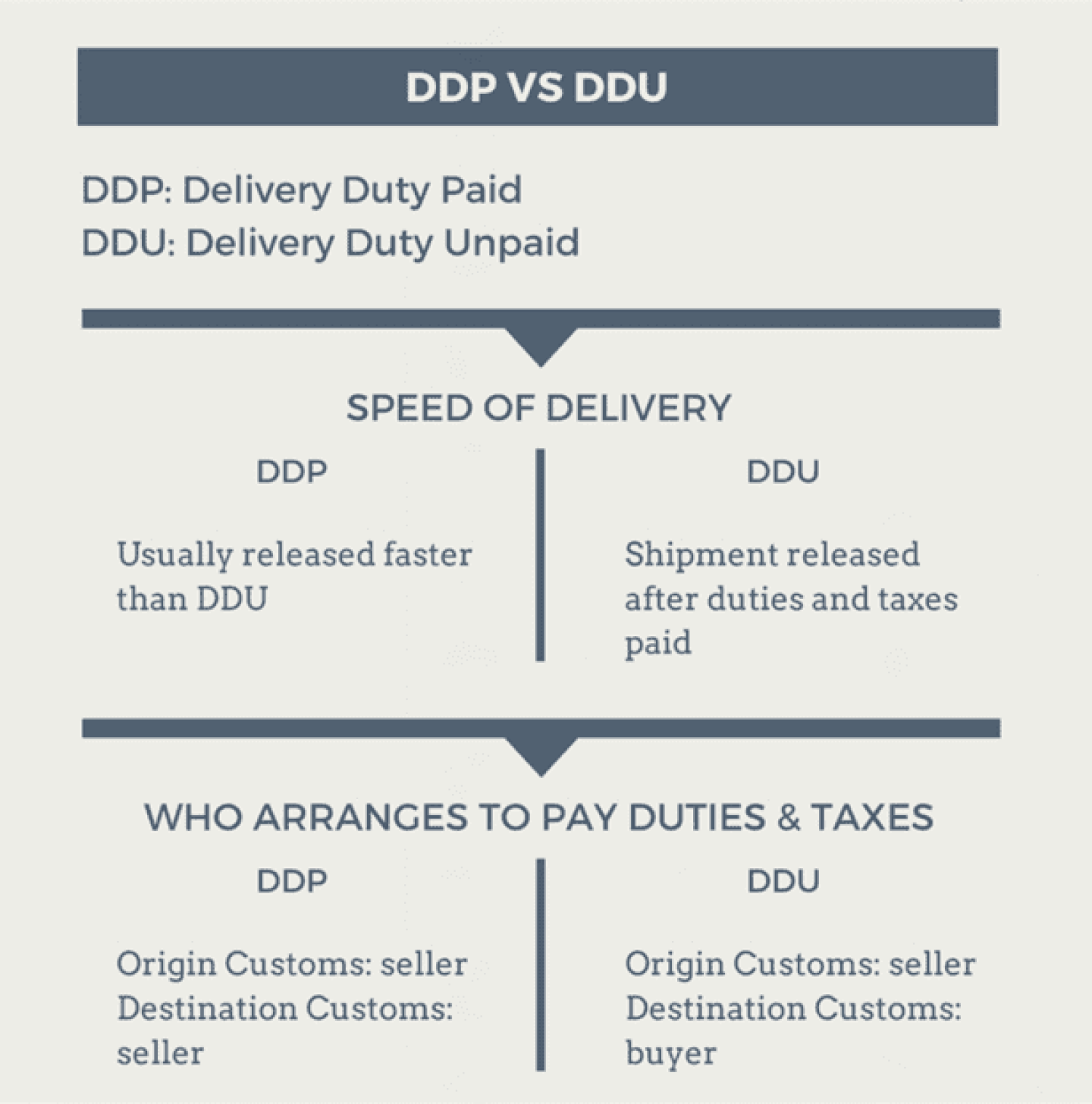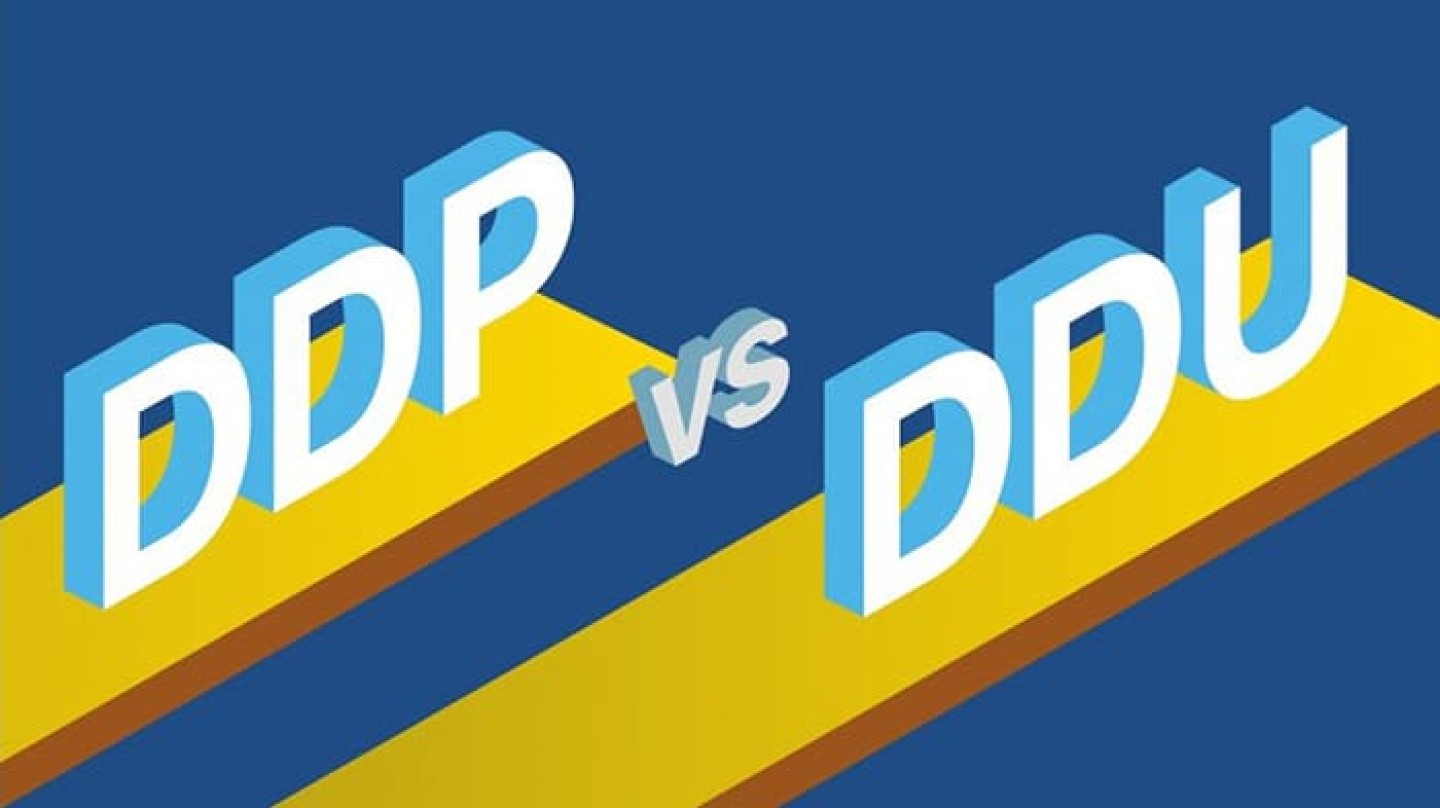Freight Forwarder Insights
Huin International Logistics Latest Articles
DDP vs. DDU: Understanding the Differences and Making the Right Choice
Origins of DDP and DDU
Delivery Duty Paid (DDP) and Delivery Duty Unpaid (DDU) are terms originating from Incoterms®, a standardized set of international shipping rules issued by the International Chamber of Commerce (ICC). These terms are universally recognized for delineating the responsibilities of buyers and sellers involved in international transactions.
Defining DDP
DDP stands for Delivery Duty Paid. Under a DDP agreement, the seller assumes full responsibility for all aspects of transporting goods until they reach the buyer at an agreed-upon location. This could be a port, a fulfillment center, or directly to the buyer's doorstep.
Key responsibilities for the seller under DDP include:
- Shipping costs
- Export and import duties and licenses
- Customs documentation
- Taxes, such as VAT
- Insurance
- Storage costs in case of delays
- Replacement costs for damaged or lost goods during transit
- Final delivery to the specified destination
The buyer and seller must agree on all payment details and finalize the delivery location before completing the transaction. Buyers expect that all DDP-related costs are included in the price, ensuring no surprise charges upon delivery.
Defining DDU
Although the ICC discontinued DDU (Delivery Duty Unpaid) in 2010, replacing it with the Incoterm® rule DAP (Delivered at Place), the commercial practices remain largely unchanged. Under a DDU arrangement, the buyer is responsible for paying destination country customs charges, duties, and taxes once the shipment arrives at a pre-determined location.
In a DDU agreement, the seller is responsible only until the shipment reaches the agreed-upon delivery point. From there, the buyer assumes responsibility for any additional costs incurred.

Contrasting DDP and DDU
DDP Pros and Cons
Pros:
- Sellers have more control over the entire shipping process.
- Ensures a seamless experience for the buyer, potentially increasing customer satisfaction and loyalty.
Cons:
- Sellers bear significant financial, legal, and logistical responsibilities, leading to higher costs, especially if disruptions occur during transit (e.g., port strikes, political unrest, or adverse weather conditions).
- Some countries have complicated or prohibitive systems for DDP, making it less feasible for sellers unfamiliar with local customs regulations.
- Higher expenses might result from using less cost-effective logistics partners to mitigate unforeseen challenges.

DDU Pros and Cons
Pros:
- Lower upfront costs for buyers, as sellers don’t include duties and taxes in the checkout price.
Cons:
- Buyers may face unpredictable additional fees, like unexpected brokerage, storage, or late payment charges.
- Inadequate understanding of import duties by buyers could lead to shipment abandonment, negatively affecting customer satisfaction and incurring return shipping costs for sellers.
Choosing Between DDP and DDU
Which option is better: DDP or DDU? The answer depends on your business strategy and specific needs.
DDP: While costlier, DDP can enhance customer satisfaction by removing uncertainties related to customs duties and taxes. This model minimizes the risk of shipment abandonment and potentially fosters repeat business.
DDU: This model can reduce seller costs but may lead to negative customer experiences if buyers are unaware of or unprepared for additional charges. It also increases the risk of shipment abandonment, posing logistical and financial challenges.
Best Practices for Communicating Shipping Terms
Effective communication is crucial when dealing with international shipping. Ensure your customers understand their responsibilities by:
- Updating your FAQ section
- Clearly stating terms on product pages
- Detailing shipping policies on your "Shipping Policy" page
- Sending email confirmations before shipping
Conclusion: DDP as the Preferred Choice
Given the pros and cons, DDP often emerges as the more favorable option, promoting better customer experiences and reducing the likelihood of abandoned shipments. However, the final decision should align with your company's unique needs and capabilities.
How HUIN Can Assist with DDP and DDU
At HUIN International Logistics(HUIN), we specialize in providing cost-effective shipping solutions tailored to your business's growth and operational efficiency. As a trusted third-party logistics provider, we collaborate with leading eCommerce, EDI, ERP, and shipping companies to streamline your supply chain management. Contact us for a customized quote to determine if DDP or DDU is the best fit for your business needs.
